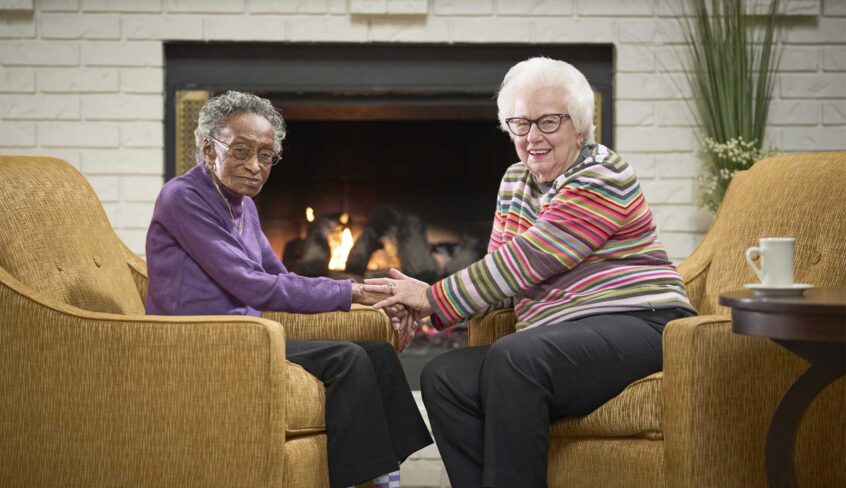Winter brings challenges for every homeowner, but seniors may need extra help preparing for ice and snow. By planning ahead and getting things done while it’s still relatively warm outside, you reduce the risk of being caught unprepared by an early storm.
Here are five ways to help senior loved ones prepare their homes for the upcoming winter months.
Preparing a Senior’s Home for Winter
1. Install storm windows
Some homes, especially older ones, may have the type of storm windows that have to be reinstalled every winter. Even if it’s just a matter of sliding the storms down the window frame, seniors might need help getting winter windows in place. Very often latches are tricky and require hand strength that an older adult might not have.
2. Get the chimney professionally cleaned
If your loved one’s home has a fireplace or a wood stove, book an appointment with a chimney sweep to come and clean the chimney. Creosote can build up over just one season presenting a serious fire hazard.
While you’re at it, have them check the damper to make sure it’s working. Finally, install carbon monoxide detectors throughout the home. Wood stoves that don’t burn efficiently can emit poisonous yet odorless gasses. The CDC recommends learning the symptoms of CO poisoning.
Even if there’s no fireplace or wood stove, arrange to have the heating system checked. The last thing you want to happen is for your loved one’s furnace to give out during a winter storm.
3. Arrange for ice and snow removal
Icy walks and driveways can lead to falls which are a leading cause of disability for seniors. Make arrangements early to have sidewalks and the drive shoveled promptly once the snow flies. If you can’t be there to do the job yourself, hire a lawn service or a neighbor to do it. Some local agencies on aging offer these types of services to help older adults during winter months.
4. Equip for emergencies
Hopefully, a winter storm won’t result in a power outage. However, it’s better to be prepared for one just in case. Here are a few tips to do so.
- Stock the pantry with food that doesn’t need to be cooked or refrigerated
- Assemble an emergency kit containing first aid supplies, blankets, extra batteries, a flashlight and a weather radio
- Make sure there’s a fully-charged cell phone ready at all times
- Have extra medicine on hand in case the drug store is inaccessible
5. Get the house ready
While we’re still enjoying the last remnants of warm weather, take time to clean out the gutters. Also be sure to check the roof for leaks and get any you find fixed before cold weather hits. If the home has water lines that run along exterior walls, it’s a good idea to insulate them or turn the water off for the season. These tips should help protect the house during the coldest months of winter.
Finally, don’t forget to winterize your senior loved one’s vehicle. These tips on winterizing your family member’s car might also be helpful.
Maintaining a Home in Winter is Tough—But You Have Options
Getting a head start on home winterization can help your senior loved one stay warm and safe this winter. But if home maintenance ever becomes too much of a challenge, there are other options. One of which is a senior living community.
Five Star Senior Living offers a range of care choices. Our Independent Living communities, for example, offer seniors the freedom and independence of living in apartments or villas. Home maintenance services are provided, so there’s no need to fuss with snow windows and snow removal in the winter! Find a senior living community near you to learn more.

